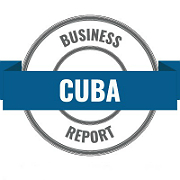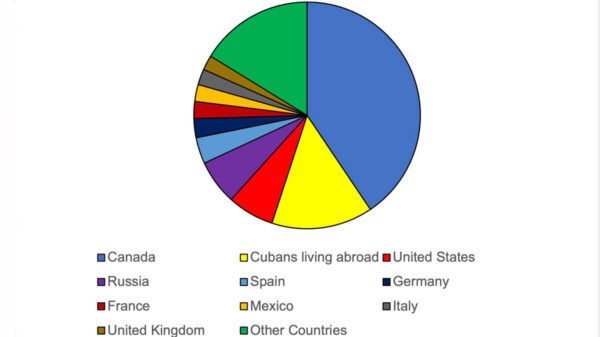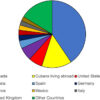The simple answer to the question “can Americans still travel to Cuba?” is a resounding “YES.” That being said, one has to wonder how long it will last. With the latest manifestation of the Helms Burton Title III regulations – one has to wonder what the next dictat will be for Americans who wish to visit?
In the short term: Go now. It’s still legal to travel to Cuba.
Cuba’s Ministry of Tourism Minister, Manuel Marrero, recently reported year-to-date tourist arrivals stood at 1,612,371 – an increase of 5.15% over the same period the previous year. The Ministry predicts the final number of tourists will increase to five million visitors in 2019 – a 7% growth over 2018 tourism stats which stood at more than 4.7 million. Revenues for 2019 are expected to surpass $3 billion dollars. That’s the good news.
Cruises to Cuba are Still Popular
Of that number, 243,000 tourists arrived by cruise ships – a very popular mode of travel, a 36% increase over the numbers of 2018. These numbers are expected to climb as the renovations to the Cienfuegos and Santiago de Cuba ports are completed.
President Trump’s tightening of restrictions against the Island has brought about major concern within the cruise industry that it will harm the ever-popular cruises to Cuba.
However, tourism statistics could be negatively affected if the anticipated number of American tourists declines because of the activation of Helms Burton Title III.
U.S. tourism companies need to get the word out that Americans are still permitted to travel to Cuba. Helms Burton Title III is anticipating the launching of a discriminatory policy permitting only Cuban-Americans to travel. In other words – discrimination against Americans could begin in the U.S. by the Helms Burton tribe of Marco Rubio, national security adviser John Bolton, Secretary of State Mike Pompeo, et al.
There has been an ongoing concerted effort by Rubio, Bolton and Pompeo to create hunger, suffering and despair for the Cuban people. Since the announcement of a fake travel warning by the U.S. State Department following the release of the Fakenews sonic attack propaganda, there has been a 40% drop in U.S. visitors to the Island. American tourist numbers had previously experienced a growth of 175%. Fake news seems to be working very well in reducing the numbers.
The U.S. Tour Operators Association (USTOA), described Cuba as a safe destination and tourism companies such as Cuba Educational Travel, reported in a recent survey that 99.13% of American travelers felt “safe” or “very safe” during their stay in the Caribbean country.
Cuba is an award-winning destination
In the meantime, Cuba continues to garner awards for tourism and tourism safety. The Caribbean Island won the Excelencias Award for Safest Travel Destination 2018, and the FITUR 2018 Madrid awards. Major conferences continue to take place on the Island and high level dignitaries (the Royal Couple) and personalities (Beyonce, Rihanna, etc.) from around the world, continue to visit to strengthen ties of friendship and collaboration.
Cuba’s most famous resort area, Varadero, won second place in TripAdvisor 2019 Travelers’ Choice Awards for the world’s best beaches. The year before, Varadero won third place for best beaches on TripAdvisor.
The hotels Paradisus Princesa del Mar, Gran Hotel Manzana Kempinski and Hotel Nacional have all been recognized in various categories of the 2018 World Travel Awards.
And one cannot argue that many tourists are repeat visitors – year over year. Canadian tourists still remain the largest market for Cuba. Europeans don’t visit as much because of the lack of direct flights, but they are still visiting in great numbers from Italy, Spain, Germany and the U.K.
The highlights of Cuba, its climate, beaches, environment, culture, warm, friendly people, and tourism safety, will continue to attract tourists by large numbers no matter what the U.S. government and the folks in Miami want. Let’s hope the Americans will continue to have the freedom to visit this amazing Island. There’s no place like it. So, our advice, again: Go now, while you can. It’s still legal to travel to Cuba.

From our staff writers and editors.












